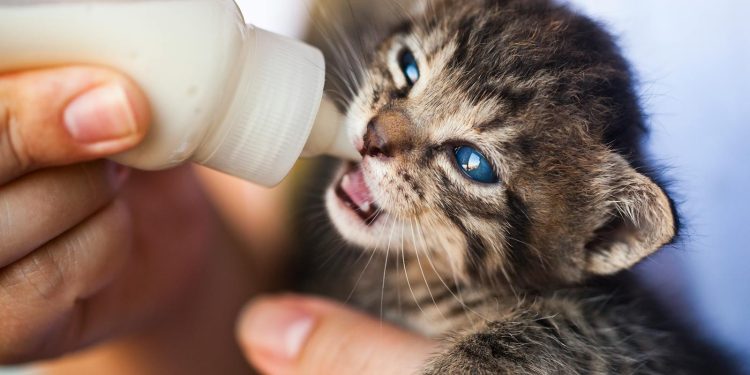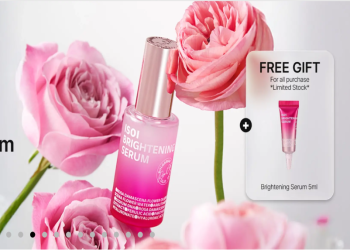Proper nutrition is one of the most important aspects of caring for your pet, and it can make the difference between a healthy, happy animal and one that suffers from avoidable health issues. However, navigating the world of pet food can be challenging, and it’s easy to fall into common pitfalls when it comes to feeding your furry friend. From misconceptions about portion sizes to misreading ingredient labels, even the most well-meaning pet owners can make mistakes. Here are five common mistakes in pet nutrition and how to avoid them.
1. Feeding Incorrect Portions: Too Much or Too Little
One of the most frequent mistakes pet owners make is not feeding their pets the right amount of food. Overfeeding and underfeeding are both harmful, and either can lead to serious health issues. Overfeeding is a common issue, especially with pets that love to beg or those who seem to be always hungry. However, consistent overfeeding can lead to obesity, which, in turn, increases the risk of other health problems such as diabetes, joint issues, and heart disease.
Underfeeding, on the other hand, can result in malnutrition, lethargy, and a compromised immune system. The best way to avoid these problems is to follow feeding guidelines based on your pet’s weight, age, activity level, and breed. Most commercial pet foods provide general feeding recommendations on the packaging, but these should be used as a starting point, not as an absolute rule. Consulting with a veterinarian is key to determining the correct portion size for your individual pet, as they can provide personalized recommendations.
Another important consideration is to adjust feeding portions as your pet’s needs change over time. Growing puppies and kittens require more food to support their development, while older pets may need fewer calories due to decreased activity levels. Regularly assessing your pet’s body condition and consulting with your vet can help you adjust portions accordingly.
2. Relying on Low-Quality Commercial Pet Foods
There are countless brands and types of pet food available, ranging from low-budget options to high-end, premium products. Unfortunately, many pet owners gravitate towards cheaper, low-quality pet foods that are often loaded with fillers, artificial additives, and poor-quality ingredients. These types of foods can lack the essential nutrients pets need, resulting in deficiencies and long-term health issues.
High-quality pet foods, while sometimes more expensive, provide a balanced diet with the right proportions of protein, fat, and essential nutrients. Look for foods where the first ingredient is a named source of animal protein, such as chicken, beef, or salmon. Avoid pet foods that list vague ingredients like “meat by-products” or “corn meal” as primary components. These ingredients are often low in nutrients and can contribute to digestive issues and allergic reactions.
Feeding a balanced, species-appropriate diet is critical for your pet’s well-being. Whether you choose dry kibble, wet food, or a homemade diet, it’s important to provide high-quality ingredients that meet your pet’s nutritional needs. When in doubt, consult your veterinarian for recommendations on brands that offer good-quality, balanced nutrition.
3. Ignoring Specific Nutritional Needs for Life Stages
Just like humans, pets have different nutritional needs at different stages of their lives. Kittens and puppies require a different balance of nutrients compared to adult cats and dogs, while senior pets have unique dietary requirements to support their aging bodies. One mistake that pet owners often make is feeding the same food to their pet throughout their entire life, regardless of their age or health condition.
Puppies and kittens need diets rich in calories, protein, and essential fatty acids to support growth and development. Adult pets require balanced diets that help maintain their health and energy levels without excessive calories that can lead to weight gain. Senior pets may need diets that support joint health, kidney function, and overall well-being, often with fewer calories to prevent obesity as their metabolism slows.
It’s important to choose a pet food specifically formulated for your pet’s current life stage. Many pet food brands offer options for puppies, adults, and senior pets, each with tailored nutrient profiles. Additionally, pets with health issues may require specific diets, such as those designed for kidney health or weight management. By choosing age-appropriate food and consulting your vet, you can ensure that your pet is getting the nutrients they need at each stage of life.
4. Failing to Monitor Treat Intake
Who doesn’t love spoiling their pets with treats? While giving your pet a treat now and then is a great way to reward good behavior and bond with them, it’s easy to go overboard. Many pet owners underestimate how quickly calories from treats can add up, leading to unwanted weight gain. Excessive treats can also contribute to nutritional imbalances, especially if the treats are not of high quality.
It’s recommended that treats make up no more than 10% of your pet’s daily caloric intake. When you give your pet treats, consider them part of their overall diet, and adjust their regular meal portions accordingly. Choose healthy treats that are low in calories and made with natural ingredients, avoiding those with artificial flavors, colors, and preservatives.
In addition, keep in mind that many human foods used as treats can be harmful to pets. Chocolate, grapes, onions, and certain nuts are toxic to dogs and cats, and even small amounts can cause significant health problems. Stick to pet-safe treats, and always check with your vet if you’re unsure about giving your pet a particular food.
5. Not Providing Fresh Water Daily
While food is an essential part of your pet’s nutrition, water is just as important. Surprisingly, many pet owners forget to ensure that their pets have a constant supply of fresh, clean water. Dehydration can lead to serious health issues, including urinary tract infections, kidney problems, and general lethargy.
Cats, in particular, can be prone to dehydration since they naturally have a lower thirst drive compared to dogs. This is especially true for cats fed dry kibble, which has very little moisture content. Ensuring that your pet always has access to fresh water is crucial for their overall health. For cats, you can also incorporate wet food into their diet to help increase their water intake.
It’s a good idea to change your pet’s water at least once a day and clean their water bowl regularly to prevent the buildup of bacteria. For pets that may be reluctant to drink, consider using a pet water fountain, as the flowing water can be more enticing, particularly for cats. Keeping your pet well-hydrated is a simple yet critical part of supporting their overall health.
Making Smarter Choices for Your Pet’s Nutrition
Providing your pet with the best possible nutrition is one of the most impactful ways to ensure they live a long, healthy, and happy life. By avoiding these common mistakes—feeding the wrong portions, relying on low-quality food, ignoring life stage needs, overdoing it with treats, and neglecting water—you can help set your pet up for success. Remember, every pet is unique, and their nutritional needs can change over time. Regular check-ups with your veterinarian, along with mindful feeding practices, will help ensure that your furry friend stays healthy and thriving for years to come.









Discussion about this post